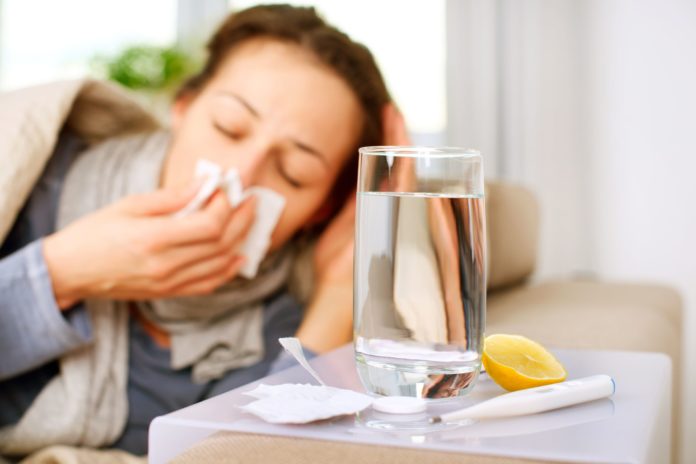The next time you will have a cold or the flu, keep in mind this: rather than take conventional drugs that are going to suppress uncomfortable symptoms, it’s better for your health to allow the cold or flu to run its course while you get plenty of physical and emotional rest.
Conventional medicine and the pharmaceutical industry wants you to have to believe that there is no “cure” for the common cold, that you need to protect yourself from the flu with a vaccine that is laden with toxic chemicals, and that during the midst of a cold or flu, it is favorable to ease your discomfort with a variety of medications that can suppress your symptoms.
Unfortunately, all three of these positions indicate a lack of understanding of what colds and flus really are, and what they do for your body.
Colds and flus are caused by viruses. So to understand what colds and flus do at a cellular level, you have to understand what viruses do at a cellular level.
Do you remember learning about cellular division in grade seven science class? Each of your cells are called parent cells, and through processes of genetic duplication (mitosis) and cellular division (cytokinesis), each of your parent cells divides into two daughter cells. Each daughter cell is then considered a parent cell that will divide into two more daughter cells, and so on.
Viruses are different from your cells in that they cannot duplicate themselves through mitosis and cytokinesis. Viruses are nothing but microscopic particles of genetic material, each coated by a thin layer of protein.
Due to their design, viruses are not able to reproduce on their own. The only way that viruses can flourish in your body is by using the machinery and metabolism of your cells to produce multiple copies of themselves.
Once a virus has gained access into one of your cells, depending on the type of virus involved, one of two things can happen:

-
- The virus uses your cell’s resources to replicate itself many times over and then breaks open (lyses) the cell so that the newly replicated viruses can leave in search of new cells to infect. Lysis effectively kills your cell.
- The virus incorporates itself into the DNA of your cell, which allows the virus to be passed on to each daughter cell that stems from this cell. Later on, the virus in each daughter cell can begin replicating itself as described above. Once multiple copies of the virus have been produced, the cell is lysed.
Both possibilities lead to the same result: eventually, the infected cell can die due to lysis.
Here is the key to understanding why colds and flus, when allowed to run their course while you rest, can be good for you:
By and large, the viruses that cause the common cold and the flu infect mainly your weakest cells; cells that are already burdened with excessive waste products and toxins are most likely to allow viruses to infect them. These are cells that you want to get rid of anyway, to be replaced by new, healthy cells.
So in the big scheme of things, a cold or flu is a natural event that can allow your body to purge itself of old and damaged cells that, in the absence of viral infection, would normally take much longer to identify, destroy, and eliminate.
Have you ever been amazed by how much “stuff” you could blow out of your nose while you had a cold or the flu? Embedded within all of that mucous are countless dead cells that your body is saying good bye to, largely due to the lytic effect of viruses.
So you see, there never needs to be a cure for the common cold, since the common cold is nature’s way of keeping you healthy over the long term. And so long as you get plenty of rest and strive to stay hydrated and properly nourished during a cold or flu, there is no need to get vaccinated or to take medications that suppress congested sinuses, a fever, or coughing. All of these uncomfortable symptoms are actually ways in which your body works to eliminate waste products and/or help your body get through a cold or flu. It’s fine to use over-the-counter pain medication like acetaminophen if your discomfort becomes intolerable or if such meds can help you get a good night’s rest. But it’s best to avoid medications that aim to suppress helpful processes such as fever, coughing, and a runny nose.
It’s important to note that just because colds and flus can be helpful to your body doesn’t mean that you need to experience them to be at your best. If you take good care of your health and immune system by getting plenty of rest and consistently making health-promoting dietary and lifestyle choices, your cells may stay strong enough to avoid getting infected by viruses that come knocking on their membranes. In this scenario, you won’t have enough weak and extraneous cells to require a cold or the flu to work its way through your body to identify and lyse them.







